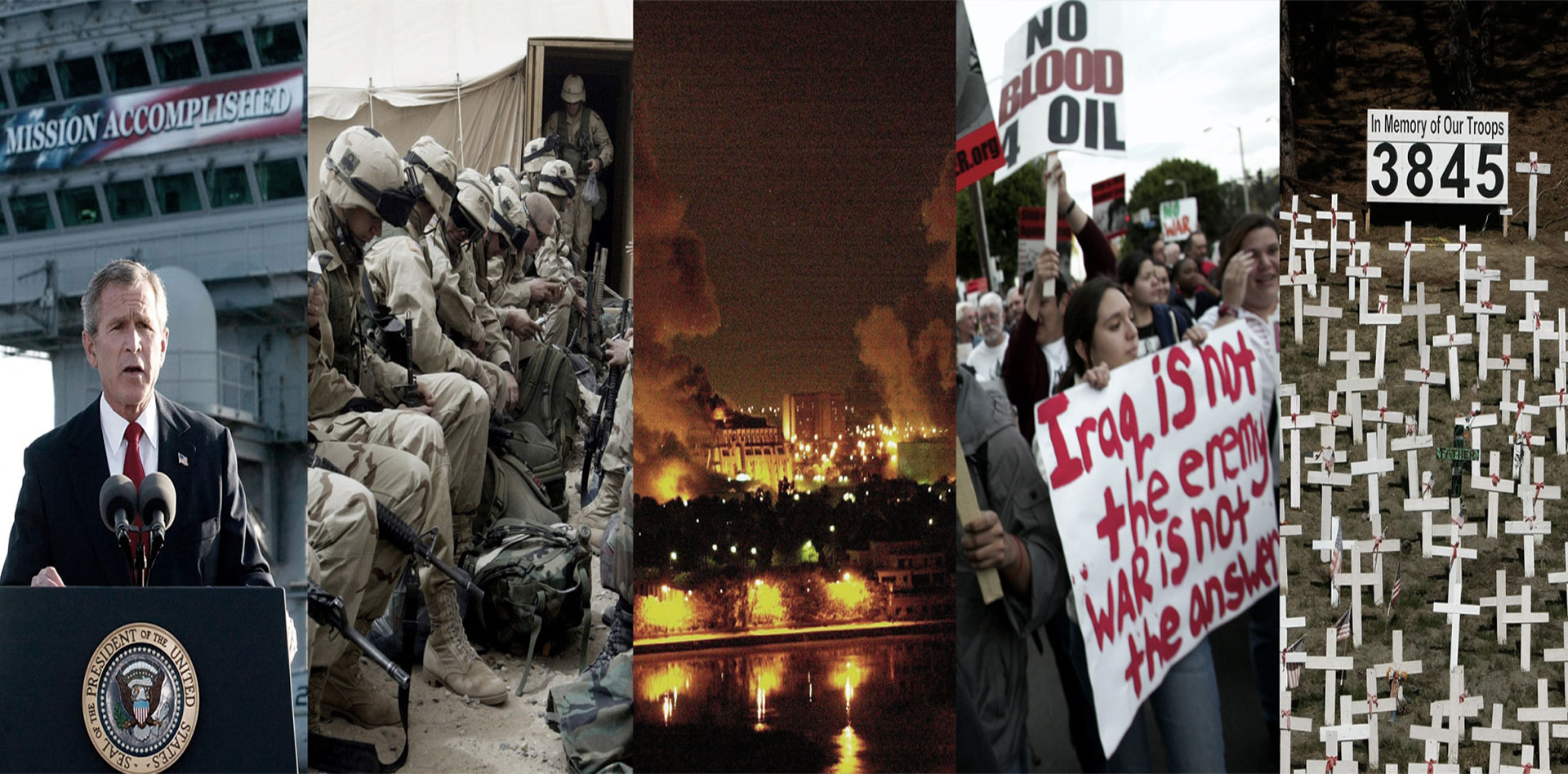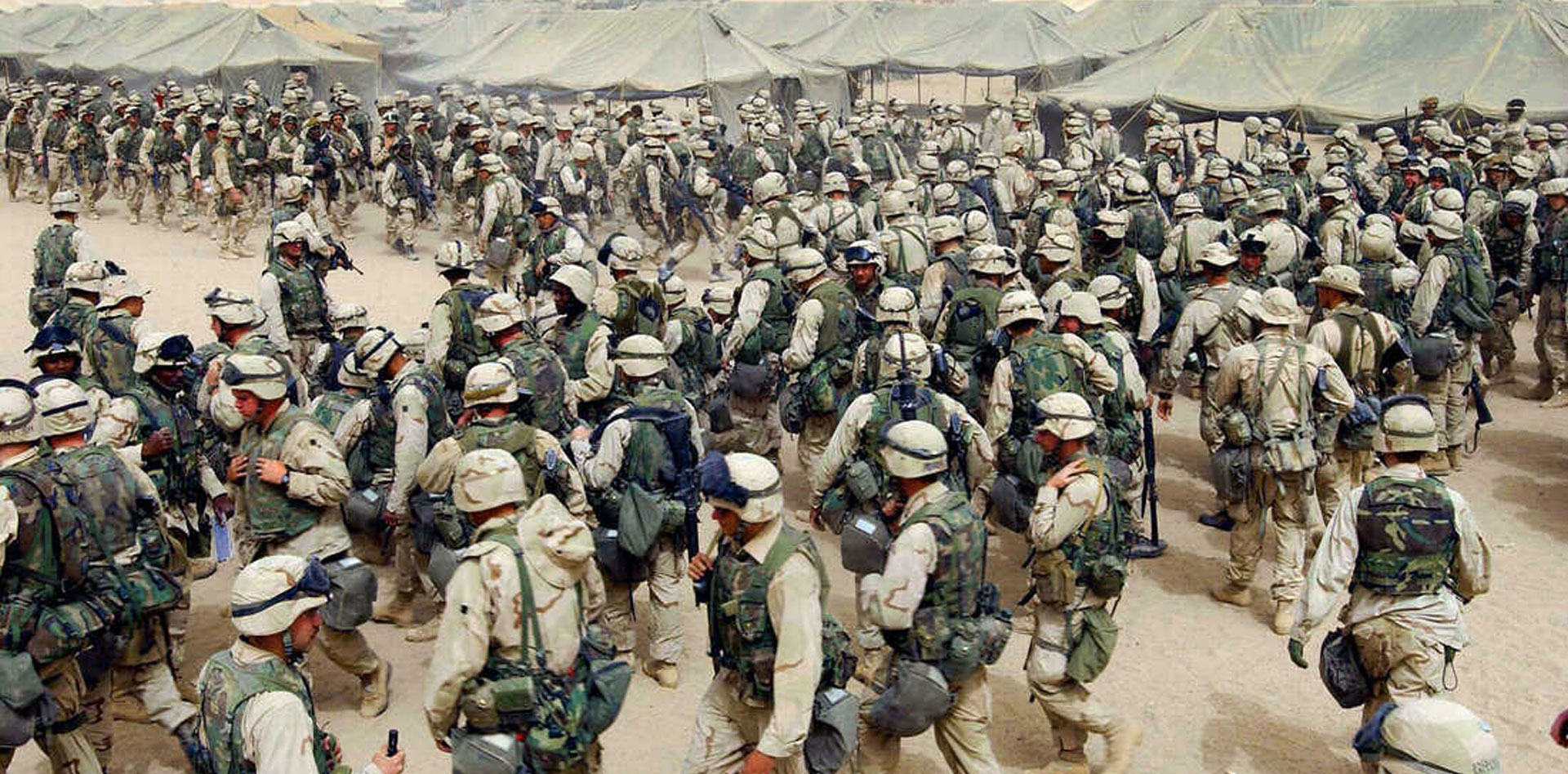From Conflict to Recovery: The Iraq War's Legacy 20 Years Later
Go Back to News and Updates-
History and Introduction:
From 2003 to 2011, there was a war in Iraq that saw the fall of Saddam Hussein's government and the deaths of over 4,500 US service members. The effects of the Iraq War are still felt today, twenty years after it ended, both domestically and internationally. The governmental, economic, social, and security landscapes of Iraq have all been significantly impacted by the war.
The 2003 US-led war on Iraq was intended to bring freedom and security to the nation, but these goals were ultimately not achieved. More than 100,000 Iraqis lost their lives as a result of ethnic strife and terrorism after the war, which led to a sharp rise in violence. Millions of people were also uprooted as a result, and many of them are still living in refugee centers today.

The war's effects on the economy have been catastrophic. Between 2003 and 2011, Iraq's GDP decreased by 28%, and the jobless rate increased to over 50%. The Iraqi dinar lost nearly 80% of its worth as a result of the conflict, which also precipitated a record-breaking economic catastrophe.
The security situation in Iraq has also been significantly affected by the conflict. Terrorist organizations like the Islamic State (ISIS) were able to establish a presence in the nation thanks to the security void left by the fall of Saddam Hussein's government. As a consequence of the war, there were more armed militias and weapons in circulation, which increased violent crime. The healthcare infrastructure in Iraq has suffered a great deal as a result of the conflict. Since many of the nation's hospitals and clinics were devastated during the war, many Iraqis now have more difficulty accessing medical treatment. The conflict also brought in a large number of migrants, many of whom have poor access to medical care.
The conflict has also significantly weakened Iraq's societal fabric. Religious and sectarian tensions have increased, and women's liberties have been badly restricted. Many colleges and institutions in the nation are struggling due to a lack of financing, which is another unfavorable residue of the Iraq War.

There have been some positive advances despite the negative effects of the Iraq War. The nation has taken action to rebuild its economy and re-establish a working government since the conclusion of the war. Along with a decline in bloodshed and an improvement in security, Iraq is also steadily recovering from the war.
Even though the Iraq War was over 20 years ago, its effects can still be felt today both domestically and abroad. The political, economic, security, health, and social circumstances in Iraq have suffered greatly as a result of the war. It is crucial to keep in mind the lessons of the Iraq War and make sure they are not replicated as the nation proceeds to transition from a time of war to one of recovery.
Reference Links:
https://www.nytimes.com/2023/03/20/us/politics/iraq-20-years.html?

